#alek shrader
Text










kelli o'hara & alek shrader, the merry widow (met, 2014)
18 notes
·
View notes
Text
youtube
Hello, friends! In about an hour and a half (for those reading later, this means Friday July 12 at 9pm eastern/8 central/7 mtn/6 pacific), Opera's Alek Shrader and I will be participating in a discussion and Q&A with Leigh Walton about the Barber of Seville/House of Bartolo opera set that I designed. I hope you'll join us!
6 notes
·
View notes
Text

Incentive #kickstarter illustration for Alek Shrader & Chris Schweizer outstanding project revisiting #Opera classic #BarberOfSeville ( #figaro) with #monsters and #horror #icons: 'The House of Bartolo' #Spooky ToyTheater figures & playset & Illustrated Booklet
-> https://www.kickstarter.com/projects/shrader/the-house-of-bartolo?ref=discover
33 notes
·
View notes
Text
The Top 40 Most Popular Operas, Part 2 (#11 through #20)
A quick guide for newcomers to the genre, with links to online video recordings of complete performances, with English subtitles whenever possible.
Johann Strauss II's Die Fledermaus
The most famous Viennese operetta, a rollickling comedy set amid Vienna's high society.
Studio film, 1971 (Eberhard Wächter, Gundula Janowitz, Renate Holm, Waldemar Kmennt, Wolfgang Windgassen; conducted by Karl Böhm)
Mozart's Cosí Fan Tutte
A comedy of romantic partner-swapping, its cynical libretto juxtaposed with Mozarts sublime music.
Zürich Opera, 2009 (Malin Hartelius, Anna Bonitatibus, Javier Camarena, Ruben Drole, Martina Janková, Oliver Widmer; conducted by Franz Welser-Möst)
Verdi's Aida
The quintessential "grand opera": a tragedy of love vs. duty and country amid the pomp and pageantry of ancient Egypt, which inspired the Elton John/Tim Rice musical of the same name.
St. Margarethen Opera Festival, 2004 (Eszter Sümegi, Kostadin Andreev, Cornelia Helfricht, Igor Morosow; conducted by Josef Pancik)
Humperdinck's Hänsel & Gretel
The quintessential "children's opera," based on the classic fairy tale.
Studio film, 1981 (Brigitte Fassbaender, Edita Gruberova, Sena Jurinac, Hermann Prey, Helga Dernesch; conducted by Georg Solti)
Donizetti's L'Elisir d'Amore (The Elixir of Love)
A sweet romantic comedy in the Italian bel canto style.
Vienna State Opera, 2005 (Rolando Villazon, Anna Netrebko, Leo Nucci, Ildebrando d'Arcangelo; conducted by Alfred Eschwé)
Puccini's Turandot
A dark fairy tale of love and deadly riddles in ancient China: controversial in its Orientalism, but with thrilling music, including the ever-famous tenor aria "Nessun dorma."
Opera Hong Kong, 2018 (Oksana Dyka, Alfred Kim, Valeria Sepe, George Andguladze; conducted by Paolo Olmi)
Die Lustige Witwe (The Merry Widow)
Another iconic example of Viennese comic operetta.
Metropolitan Opera, 2014 (Renée Fleming, Nathan Gunn, Kelli O'Hara, Alek Shrader, Thomas Allen; conducted by Andrew Davis) (sung in English)
Act I, Act II, Act III
Tchaikovsky's Eugene Onegin
The most famous of all Russian operas, based on Alexander Pushkin's great verse novel of unrequited love.
Kirov Opera, 1984 (Sergei Leiferkus, Tatiana Novikova, Yuri Marusin, Larissa Diadkova; conducted by Yuri Temirkanov)
Verdi's Nabucco
The grand Biblical opera, based on the story of Nebuchadnezzar, that first launched Verdi to fame.
St. Margarethen Opera Festival, 2007 (Igor Morosow, Gabriella Morigi, Bruno Ribiero, Elisabeth Kulman, Simon Yang; conducted by Ernst Märzendorfer) (click CC for subtitles)
Rossini's La Cenerentola (Cinderella)
The world's most famous fairy tale reimagined as a "realistic" comedy of manners with sparkling bel canto music.
Studio film, 1981 (Frederica von Stade, Francisco Araiza, Paolo Montarsolo, Claudio Desderi, Paul Plishka; conducted by Claudio Abbado)
#opera#top 40#part 2#11 through 20#complete performances#english subtitles#die fledermaus#cosi fan tutte#aida#hänsel und gretel#l'elisir d'amore#the elixir of love#turandot#die lustige witwe#the merry widow#eugene onegin#nabucco#la cenerentola
32 notes
·
View notes
Text
la traviata rant /pos
SKIP IF YOU DONT WANNA READ A VERY LONG AND PASSIONATE RAMBLE ABOUT LA TRAVIATA (spoilers i guess..?)
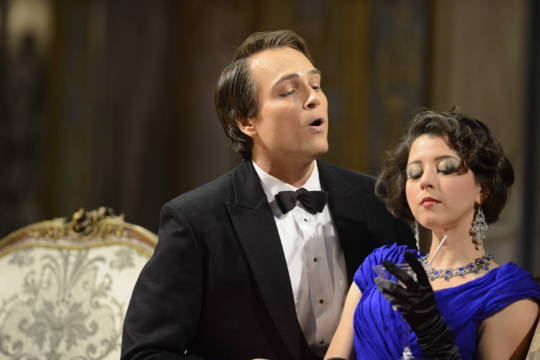
image: lisette oropesa as violetta and alek shrader as alfredo in the philadelphia opera’s 2015 production of la traviata :)
————————————————————————
ok ok ok i fucking LOVE la traviata, it’s a huge… comfort..??? i guess??? it’s the first opera i ever went to go see in person (IT WAS A DRESS REHEARSAL TOO LIKE!!!???) and it holds a place in my heart cuz i’m so familiar w the story yadda yadda
but oh my god. the amount of times i’ve went down RABBIT HOLES just analyzing violetta as a character and the whole plot in general is more than i can count on both hands.
not only that, but the second i got my hands on the novel it was based off (lady of the camellias by alexandre dumas, 100% recommend btw) i read that whole thing within like six hours during the school day because i was just so enamored.
listen it could be the autism talking but it is a MASTERPIECE. both the book and the opera are AMAZING and i don’t CARE that it’s a bit of a cliche love story romance i LOVE it so MUCH and i will DIE on this hill.
sempre libera is such a classic piece but i get JOY FROM LISTENING TO IT!!!!!! it’s how i found lisette oropesa (my absolute favorite opera singer ever to grace this earth) (the video where liu jianwei joined her when the tenor didn’t) but i love how she’s written to say “oh!” and “oh amore!” as she hears alfredo singing outside the window only to immediately snap out of it and be like “NO!!!!!!!!!! (maybe.)”
i don’t know what it’s technically called cuz i’m rlly not that good with aria/duet/recit/etc names but the like.. one phrase in the duet with giorgio germont where violetta is pleading his father to not separate them always gets me because its such an emotional moment. the part i’m referencing is the “Ah, il supplizio è sì spietato,
che a morir preferirò” at the very end of her part which prompts giorgio to respond with “i know it’s a large sacrifice but please just hear me out girl”
addio, del passato never fails to make me want to bawl my goddamn eyes out because it grabs my heart and tears it apart . she just. wants to live. she wants to live for alfredo. and when he DOES ultimately return she’s hit in the face with the cold, hard and awful truth— that alfredo returning would not save her. WHICH, IN THE BOOK, HE NEVER RETURNS TO HER. SHE DIES ALONE. ALONE. READING THE PARTS WHERE IT WAS HER WRITING TO ALFREDO LEGITIMATELY MADE ME TEAR UP AT LUNCH BECAUSE IT WAS SO SAD AND YOU COULD SENSE THE DESPERATION OOZING OFF THE PAGES.
breathes in… breathes out. i promise im normal guys

image: lisette oropesa as violetta and daniel mobbsas as the baron in the same production as before :)
#sorry for hyperfixation posting in general chat it will happen again#la traviata#lisette oropesa#opera#opera tag
4 notes
·
View notes
Text

A creativity cave does need to hold some inspiration, right?
Here's mine, with
a freshly passpartout'd Sunset with Pine Trees by @theweeowlart in the center
Carmen* by Marguerite Sauvage
Carmen* by Erica Henderson
Carmen* by @colleendoran
a cover print of Snow Glass Apples by @colleendoran
(* artworks for graphic novel Bizet's Carmen by Alek Shrader, P. Craig Russel, Aneke)
0 notes
Photo

Arizona Opera brings Georges Bizet’s ‘Carmen’ to comics
Back the Kickstarter for a new graphic novel adaptation of the classic opera by Alek Shrader, P. Craig Russell and Aneke.
#comics on kickstarter#kickstarter#arizona opera#carmen#alek shrader#p#p. craig russell#aneke#opera#graphic novels
5 notes
·
View notes
Text
O19: A Genuine Festival and an Operatic Feast
O19: A Genuine Festival and an Operatic Feast
Producing one opera is a chore.
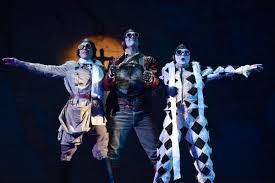
Even when, in an unusual course of events, scenery and costumes are minimal, there’s a score, orchestrations, a libretto, the staging, and the delicate but all-consequential relationship between orchestra, singing, and theatrical direction to consider.
Producing four or more operas at once is a gargantuan undertaking.
Doing it with panache, and achieving a…
View On WordPress
#Alek Shrader#Alessando Talevi#Alex Rosen#Amanda Forsythe#Barry Banks#Carlo Gozzi#Corrado Rovaris#Daniela Mack#David Devan#Denis & Katya#George Frideric Handel#James Darrah#Jonathan Johnson#Joseph Keckler#Let Me Die#O 19#Opera Festival 2019#Opera Philadelphia#Philip Venables#Sarah Shafer#Semele#Sergei Prokofiev#Siena Licht Miller#Ted Huffman#The Love for Three Oranges#Theo Hoffman#Tim Mead#Vera Janacopoulos#Wendy Bryn Harmer#Zachary James
0 notes
Text
Opera 2020: The Tempest (2/99)
My Rating: (4.75/5)
Continuing on this track with some notes on Thomas Adès’s The Tempest! I got this opera DVD in November and finally got around to watching it just before I headed back to school (because I brought my DVD player extension home with me for break and I was going to use it over break goshdangit). The performance I watched was one from 2012, starring Sir Simon Keenlyside as Prospero.
* * *
Okay, so I got this opera from my university’s library in November so I could possibly use it when I was working on a Tempest paper last semester. That did not happen (which is fine), but it was really interesting to be able to look at some points in Shakespeare’s text that I touched on in my paper and see how the opera addressed them.
One of those things was Prospero’s lack of specificity in his commands towards Ariel in Shakespeare’s text. I used this to create the argument that Ariel might have had some freedom in how he enacted Prospero’s wishes, and in addition to the fact that I felt like it was unclear between Prospero and Ariel who really had more skill, I argued that it was through music that Ariel takes his form of agency. (I use “he/him” pronouns for Ariel based on the one reference to a pronoun which Ariel uses in 1.2. - “task Ariel and all his quality”). Additionally, I feel like this lack of specificity in command also creates an air of suspense in the audience. We don’t know when Ariel is going to show up again, and we certainly do not know what he is going to do once he is made “like a nymph o’th’sea”. His songs are unexpected, though necessary points of dramatic movement.
In Adès’s opera, these commands are explicitly clear. Meredith Oakes’s libretto is not the original text, but does keep some of what I feel to be the play’s best lines (one that I remember is ‘this isle’s full of noises’ - which is a great line from a great speech in the text). So what happens in the opera is that we get a line in which Prospero says “bring Ferdinand to me”, which is a significant change from the original text in how that relationship works. Ariel does not seem to act without Prospero’s explicit commands in this opera, which could possibly make it seem that Ariel is even more constricted than he is in the original text.
As for some other things about the changes between the opera and the original Shakespearean text, there were some pretty significant changes in the plot regarding Ferdinand and Miranda. They end up running away together at the end of the first half, Miranda defying her father’s wishes when we get “he is a Caliban” moment. And they literally (I’m not joking) run off into the sunset as the curtain closes for intermission. While I recognized it as a pretty significant change from the original, I didn’t actually mind it that much. I liked seeing Miranda (Isabel Leonard) having more agency; it certainly felt more in line with the kind of young woman she is painted to be in the text (one with a boy’s education, and one who could probably easily lift the logs that Ferdinand struggles to carry, tomboyish and more masculine than some other Shakespearean daughters). Ferdinand (Alek Shrader) was absolutely precious throughout the entire opera, and it was like the only thing I kept thinking about any time he was on stage - and as a side note, I’m definitely going to make gifsets because y’all need to see how precious he was. He certainly was no Caliban.
Speaking of Caliban, I totally understand why Ian Bostridge played him in the original 2004 cast now. If you know anything about Ian Bostridge (or even just what he looks like), you might cast him as Ferdinand, especially in 2004 when he was a bit younger, or maybe even Antonio if he was slightly too old to play Ferdinand. Caliban might be the last thing on your mind (and it’s interesting to think about Caliban as a tenor as well, because you probably wouldn’t normally see a character like Caliban in that sort of voice role). But then again, Caliban’s role in this opera was changed to one of a dispossessed prince. His struggles and his narrative voice, while he does play Prospero’s foe, fit within a tenor’s character. It makes even more sense when you think about the kind of stuff Bostridge likes to sing, Schubert and Britten seem to be his two favorites, so an angsty prince fits quite well (especially when you think about his long dedication to Schubert’s Winterreise - which is a terribly angsty tenor song cycle). I only mention Bostridge as the role was written with him in mind as playing Caliban. The role in this performance that I saw was played by Alan Oke, in which costuming was changed to be slightly more monstrous and less human-like than Bostridge’s. However, just listening to the libretto, I could definitely imagine it.
Another change from the text was that the side-plot/backstory involving Claribel was taken out and replaced with another backstory involving an extravagant holiday that Alonso was taking along with many other members of court (which made up the chorus). I’m not sure whether I liked this change or not, though I suppose it makes Alonso look slightly more deplorable. It doesn’t seem to match up with the rest of his character though, especially in this opera, as he spends most of it lamenting for his son.
Other notes on this performance: I wasn’t exactly sure how I felt about Ariel in this opera, and her voice range was probably one of the reasons why I was unsure. It makes sense to cast a coloraltura soprano. The agility and skill that voice-type demands is fairly in-line with Ariel’s otherworldly magical qualities as a spirit. However, it was extremely difficult for me to understand the libretto because it was so high in register, so it helped to have subtitles on. That is nothing against Audrey Luna, who has a stunningly beautiful voice and her acting was also well done. It did get easier to understand her as the opera went on, but that first duet between Ariel and Prospero was certainly a bit difficult to get through. Additionally, I wasn’t quite sure how to feel about the chorus. Shakespeare’s play isn’t something that requires one, and there’s a lot of intimacy in the play for having it take place on a deserted island. We get wonderful relationships that develop in that lonely island space, so the chorus kind of took that away for me. Finally, the second half felt a bit crunched-down, a bit rushed through (particularly Caliban’s assassination plot, Antonio and Sebastian’s assassination plot, and the masque that happens in 4.1.). I’m thinking that this was most likely because they spent so much time with Ferdinand and Miranda in the first half, but I’m not sure.
On the whole, I really enjoyed this opera. I definitely recommend giving it a listen, and if you’re able to get your hands on a DVD of it, to do that as well! Especially if you are a fan of Shakespeare’s play. I adore The Tempest as a play, and this opera made me fall in love with the text all over again. I also recommend looking up pictures of Ian Bostridge as Caliban because it’s trippy and wild but makes so much sense once you’ve actually seen this opera. I would have loved to have the 2004 performance filmed. Next up on my list is Madama Butterfly, which I will continue watching tonight.
#year of opera 2020#the tempest (2004)#thomas adès#i loved this opera y'all#even though i've got some criticism about it#opera#classical music#(my rake's progress rating is a 5/5 if you couldn't tell by the last post#hehehe#on to madama butterfly!
3 notes
·
View notes
Text
Semele At Opera Philadelphia
Opera Philadelphia’s production of Semele presents such a wealth of auditory and visual riches, I hardly know where to begin this review. But let us start with the singing. Singing may be said to be the bedrock on which any opera builds, and what a foundation this was. The singing was, to a person, exceptional. Some of the singers I was familiar with, but this production introduced me to many new favorites, whose careers I will follow with great interest. I was particularly impressed with the chorus, which had a beautiful even, blended, sound. They did Handel’s sublime choral music a great credit. The orchestra did a capable job of generating a believable baroque sound, especially given that it was not a period ensemble, though some of the dance rhythms were a little muddled.
A quick recap, for those of you who don’t know the plot: it’s from Roman Mythology, and it follows the well trodden path of most Roman myths: Jupiter falls in love with a mortal woman (Semele). Jupiter absconds with mortal woman (Semele) to garden of heavenly delights. Mortal woman gets insecure about sleeping with a god and wants to be immortal. Juno gets jealous. Juno wakes up the god of sleep and forces him to put the dragons guarding the garden of delights to sleep, then takes control of the mortal woman’s sister and tells the mortal woman that if she makes Jupiter come to her in his full glory, she will be a goddess. Mortal woman makes the request, gets burned to a crisp, and then Dionysus is born from her ashes and the world rejoices.
I mostly go to the opera for the music (I mean, you’re not there for the plot, see above), but I am not immune to the charms and pleasures of a well dressed set, and I found the set and lighting a particularly effective addition to this production. Through the ingenious use of banners and projections the set was believably both the mortal realm and the many faceted realm of the gods. The banners scrolling down as streams of stars and clouds passed along them was an ingenious and stunning way to transition between the worlds, and the falling banners at the end as everything fell apart was a striking visual.
There is a growing trend of returning the dances that originally were so integral to these operas to a place of prominence. This production goes farther along this road than others I have seen, and in general I thought it was an addition that added interest and drama. It was particularly effective in the scene where Juno puppets a dancer representing Ino to convince Semele that she has begun to transform into a goddess, and become beautiful. The choreography also added to many of the large choral numbers, adding visual interest and increasing the impact. However, in a few of the quieter, more emotional scenes, for example when Ino declares her love to Athamas, I found the bold choreography a touch distracting and I wish the choreographer and director had trusted the drama to stand on its own two feet and hold the audience’s attention without the dancer. The dancers were all skilled however, and, apart from those scenes, I think it was a creative and fun addition to the opera. Maybe I need to start going to see some dance performances even when they aren’t accompanied by opera.
I had heard of Amanda Forsythe, but had never had the pleasure of seeing her in person, and wow! She is such a dynamic stage presence, both vocally and physically. Many of her arias were sung as she was being lifted, carried, and otherwise thrown around the stage by the aforementioned dancers, and she didn’t miss a note. Her clear, flexible voice never faltered. And her showstopper aria, “Myself I shall Adore” did indeed bring down the house. I particularly appreciated her ornamentations, (of which there were many) which were novel and creative without being anachronistic. I don’t know to whom I have to sell my soul to get her to sing more Handel in Washington DC, but I am accepting offers.
As we always do, my father and I were comparing notes at intermission, and he was particularly taken with the performer playing Ino. He had found her particularly affecting in her aria, “Turn hopeless lover.” But he went on to say that he was withholding judgement on the performer portraying Juno, as he though so far she was okay but not exceptional. At which point we discovered that the roles were both being portrayed by the same actress--the amazing Daniela Mack. We had the pleasure of seeing her at Carnegie Hall doing Alcina in concert (prior to the origin of this blog). This should tell you something about Ms. Mack’s range, if not our observational skills. Even in the second act, when I knew that both roles were portrayed by the same woman, I found it hard to believe. Her physicality was mesmerizing, and her voice shone in both roles.
As for Alek Shrader, who played Jupiter, my father had the following to say, “It is a good thing the show did not actually attempt to show Jupiter coming to Semele in his full glory because several members of the audience might have also died.” I am not ashamed to say that I cried during “We’er you walk.” I have ears and a soul. His physical bearing and vocal power were something to behold--it was easy to believe that he was a god taking human form on the stage. I look forward to more from him in the future.
Tim Mead’s reputation preceded him, and he also delivered on some fiendishly difficult coloratura. Sometimes I find countertenors to be lacking in power, but his voice felt full and powerful throughout the range. His voice and Ms. Mack’s blended together exquisitely in their duets.
I had seen Alex Rosen in Opera Lafayette’s production of Radamisto, and was quite impressed with him. His bass is full and rich (especially for such a young performer), and he moves fluidly through coloratura. I am watching his career with interest and I hope to be able to say I saw him when.
Sara Shafer was the lone performer I had neither seen perform before, nor heard of, and what a beautiful ray of light she was. It is impossible not to be entertained by her portrayal of Iris. A perfectly calibrated bit of comic relief, she was at 110% every second she was on stage, and had the audience wrapped around her little finger. I can’t wait to see what she does next.
3 notes
·
View notes
Text




kelli o'hara & alek shrader, the merry widow (met, 2014)
+ bonus:

2 notes
·
View notes
Text

Hey, friends! Opera fella Alek Shrader is launching his kickstarter for the HOUSE OF BARTOLO (a classic horror movie aesthetic production of Rossini's BARBER OF SEVILLE) set that I got to design and do the art for; it's a 2 foot/60 cm-wide model of Bartolo's gothic villa, at roughly the 28mm (1/56) scale common to gaming.
You can follow the kickstarter campaign (no obligation) so that you'll be notified when it launches in mid-June.

The set comes with figures of the entire cast (each leaning into a classic horror movie type (Abrogio is a Frankenstein, the notary is an invisible man, Berta is a creepy nurse, Almaviva is a dracula but his disguises are a headless horseman, an opera phantom, that kind of thing, Figaro is a wolfman, etc).


It was a real joy to help make and I'll talk about it more at length in the coming weeks, but I'm told that Kickstarter campaigns tend to have better legs if folks are following them ahead of time, so I wanted to help Alek out by spreading the word. If you know anyone who might be keen on this sort of thing, I hope you'll steer them towards it!





#Classic Horror#Barber of Seville#gioachino rossini#Rossini#Opera#Gothic Romance#Gaming Terrain#Model Buildings#Classical Music#Figaro#House of Bartolo#Kickstarter
146 notes
·
View notes
Text
0 notes
Text
Character ask: Tamino (The Magic Flute)
No one sent me this ask, I just felt like writing it.
@ariel-seagull-wings, @leporellian
Favorite thing about them: His love for Pamina and the beauty, warmth, and ardor of the music with which he expresses it. I also like productions that make him less of a stalwart paragon and highlight his youthful naiveté and coming-of-age journey.
Least favorite thing about them: The degree of cold sternness he gains as a follower of Sarastro in Act II, of which poor Pamina and Papageno are on the receiving end. Also (and relatedly), his parroting the priests' misogyny in the Act II quintet with Papageno and the Three Ladies.
Three things I have in common with them:
*I can be passionate and hot-blooded.
*I tend to be very trusting.
*I sometimes blindly follow other people's instructions.
Three things I don't have in common with them:
*I'm not royalty.
*Where courage is concerned, I'm more like Papageno.
*I'm female and I don't consider "manhood" an ideal.
Favorite line: The text of "Dies Bildni ist bezauberndt schön."
brOTP: Sarastro and his priests; maybe Papageno too, but only in productions that let him be warmer toward him and less aloof and impatient than he sometimes comes across.
OTP: Pamina.
nOTP: The Queen of the Night.
Random headcanon: When he eventually rules as a "wise monarch" (whether as Sarastro's successor, or of his own father's empire, or however you think it will happen), Pamina will be his equal partner and co-ruler, but her role will chiefly be spiritual and philosophical leadership, while Tamino's will be worldly/political leadership. In effect, they'll both be heirs to Sarastro, but Tamino will embody the "king" aspect of Sarastro's style of ruling, while Pamina embodies the "priest" aspect.
Unpopular opinion: I'm not sure if this is unpopular, but... If the tenor in the role stands like a statue during Pamina's "Ach, ich fühl's," without conveying through facial expressions and body language that Pamina's anguish is breaking his heart, and if he does nothing to express his pain and remorse after she leaves (e.g. starting to run after her only to sadly restrain himself, collapsing to the floor, and/or breaking down in tears), he had better have a magnificent voice, or else he doesn't belong on the stage.
Song I associate with them:
"Dies Bildnis ist bezauberndt schön"
youtube
"Wie stark ist nicht dein Zauberton"
youtube
Favorite picture of them:
Georg Maikl, early 20th century.
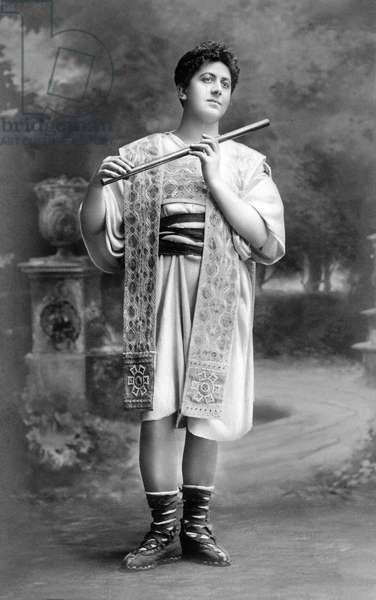
Fritz Wunderlich, 1960s.
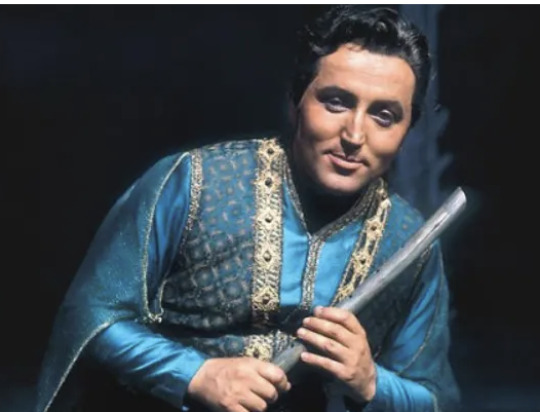
Josef Köstlinger, Ingmar Bergman film, 1975.
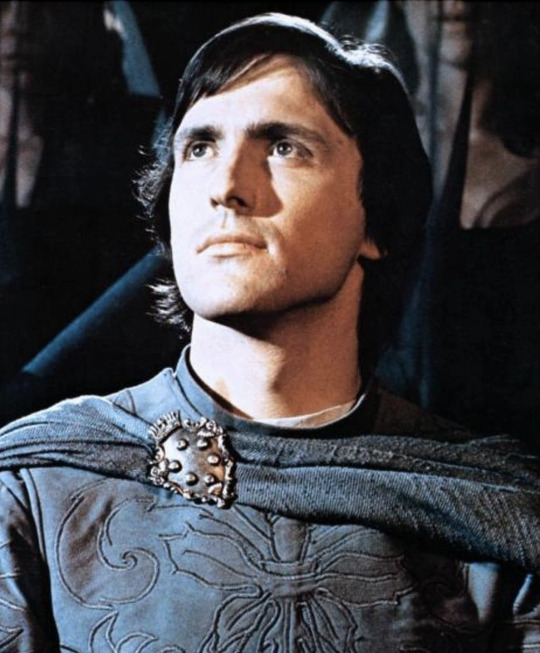
Unknown tenor (I just love how innocent and happy he looks, and I love the elegant animal costumes).
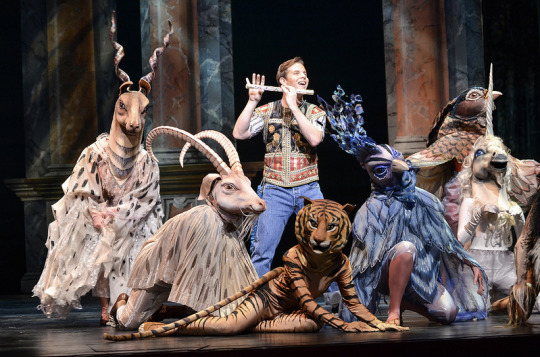
Michael Schade with Andrea Rost as Pamina, LA Opera, 2002.

Joshua Kohl, Sarasota Opera, 2010.

John Tessier, Seattle Opera, 2011.
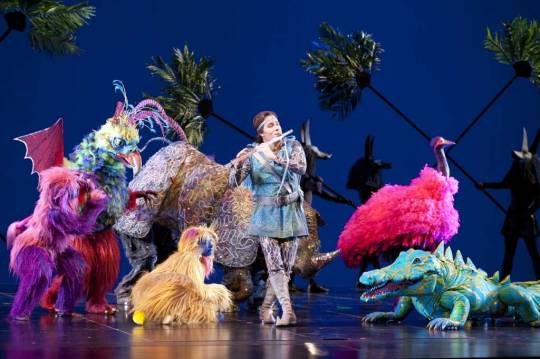
Mhlekazi Andy Mosiea in the production by South Africa's Isango Ensemble, 2014.
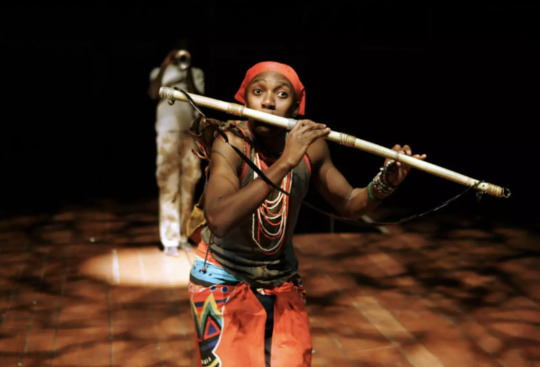
Alek Shrader, Metropolitan Opera, 2014.
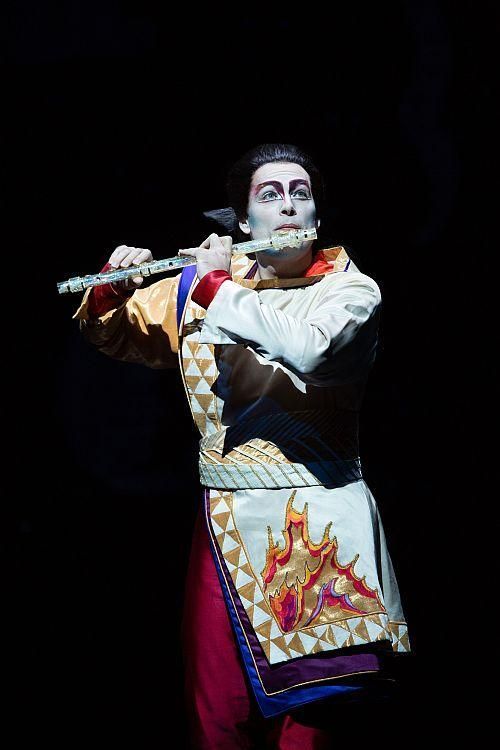
Pasqual Charbonneau, Opéra de Québec, 2018.
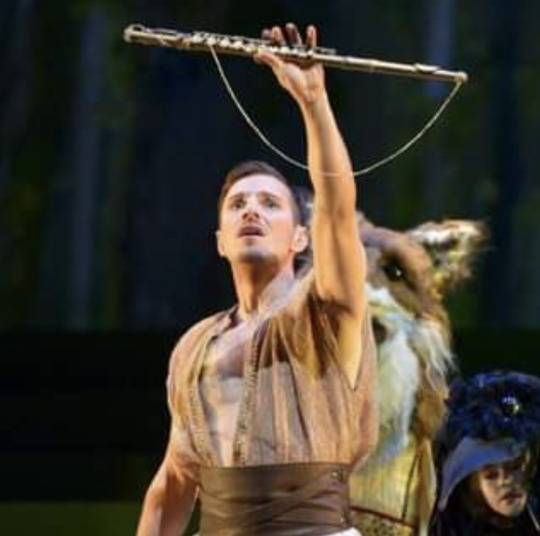
#character ask#opera#the magic flute#die zauberflöte#tamino#wolfgang amadeus mozart#ask game#fictional characters#fictional character ask
16 notes
·
View notes
Text
Interview with Alex Shrader
Interview with Alex Shrader
Perhaps the most famous opera in history, Georges Bizet’s opera Carmen remains one of the most exciting and popular works in the repertoire. And now, nearly 150 years later, the story of Carmen is being adapted again — this time as CARMEN: THE GRAPHIC NOVEL, written by opera singer and director Alek Shrader and illustrated by legendary artist P. Craig Russell and Aneke, and lettered by Hassan…

View On WordPress
0 notes
Text
Arizona Opera Brings a Graphic Novel Adaptation of Bizet’s CARMEN to Kickstarter
Arizona Opera Brings a Graphic Novel Adaptation of Bizet’s CARMEN to Kickstarter
Featuring Tenor and Director Alek Shrader, Legendary Artist P. Craig Russell, Artist Aneke, and Award-winning Letterer Hassan Otsmane-Elhaou
Perhaps the most famous opera in history, Georges Bizet’s Carmen premiered in 1875 at the Opéra-Comique in Paris. The four-act opera, featuring a libretto written by Henri Meilhac and Ludovic Halévy and adapted from the novella by Prosper Mérimée, remains…

View On WordPress
1 note
·
View note